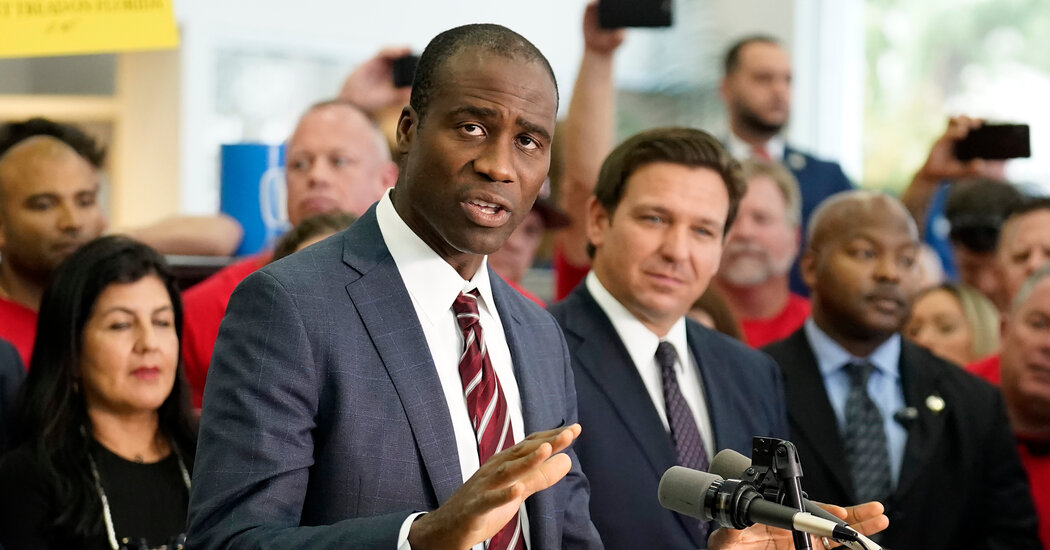“`html
Florida Proposes Ending Vaccine Mandates for Schoolchildren
Florida is taking significant steps towards modifying its vaccination requirements for schoolchildren, with a proposal aimed at granting parents greater flexibility regarding vaccine mandates. This initiative is part of a larger trend across the United States, where states are increasingly re-evaluating their vaccination policies in the wake of rising public sentiment against mandatory vaccination. Currently, all states in the U.S. have some form of vaccination requirements for children entering school, with provisions for medical exemptions and, in many cases, religious or personal belief exemptions.
The proposed legislation in Florida seeks to end the requirement for certain vaccinations before children can enroll in public schools. This move has sparked discussions among parents, educators, and public health officials regarding the implications for children’s health and public safety. The existing law in Florida mandates vaccinations for various diseases, including measles, mumps, rubella (MMR), diphtheria, tetanus, pertussis (DTaP), and polio. The proposed changes would allow parents to opt out of these requirements based on personal beliefs, which could potentially lead to lower vaccination rates among school-aged children.
Current Vaccination Requirements in Florida
Under the current Florida law, the following vaccinations are required for school entry:
- MMR (Measles, Mumps, Rubella): Required for school entry.
- DTaP (Diphtheria, Tetanus, Pertussis): Required for school entry.
- Polio: Required for school entry.
- Chickenpox (Varicella): Not required.
- Hepatitis A: Required for school entry.
- Hepatitis B: Not required.
- Meningococcal: Not required.
- HPV: Not required.
Exemptions Across the United States
Vaccination requirements vary widely across states, with some allowing broad exemptions while others maintain stricter policies. For instance:
- California: Only medical exemptions are allowed; personal belief exemptions are not permitted.
- Texas: Allows both medical and personal belief exemptions.
- New York: No personal belief exemptions are allowed, but medical exemptions are permitted.
- Alaska: Allows both medical and personal belief exemptions.
The increasing push for personal belief exemptions has raised concerns among public health officials about the potential for outbreaks of vaccine-preventable diseases. Lower vaccination rates can lead to higher risks of diseases such as measles, mumps, and pertussis, which have seen resurgences in recent years. Historical data shows that prior to the widespread adoption of vaccines, these diseases caused significant morbidity and mortality among children.
Public Health Implications
The implications of easing vaccination mandates are significant. Public health experts argue that high vaccination rates are crucial for herd immunity, which protects those who cannot be vaccinated due to medical reasons, such as infants or individuals with compromised immune systems. Easing these requirements could undermine efforts to control outbreaks of infectious diseases, leading to increased hospitalizations and healthcare costs. Health organizations, including the Centers for Disease Control and Prevention (CDC), advocate for maintaining high vaccination coverage to prevent outbreaks. They emphasize that vaccines are safe and effective in preventing serious illnesses and complications associated with vaccine-preventable diseases.
Moreover, the historical context of vaccination campaigns in the United States demonstrates the success of immunization in eradicating or significantly reducing the incidence of several diseases. For example, the introduction of the measles vaccine in the 1960s led to a dramatic decline in cases, and the disease was declared eliminated in the U.S. in 2000. However, recent outbreaks have highlighted the vulnerability of communities with lower vaccination rates.
Community Response
The proposal has elicited mixed reactions from the community. Some parents support the idea of having more control over their children’s healthcare choices, believing that personal beliefs should be respected in medical decisions. Conversely, others express concern about the potential risks to public health, highlighting that individual choices can have broader implications for community health.
Educational institutions and healthcare providers are also weighing in, emphasizing the importance of vaccinations for the safety of all students. Many school districts have expressed apprehension about the potential consequences of lower vaccination rates, which could lead to increased absenteeism and healthcare costs associated with outbreaks.
In response to the proposed changes, several advocacy groups are mobilizing to ensure that vaccination rates remain high and that public health is prioritized. These organizations argue that public health policies should be guided by science and evidence, rather than personal beliefs. They are advocating for educational campaigns to inform parents about the effectiveness and safety of vaccines, aiming to counter misinformation that may influence vaccination decisions.
Conclusion
As Florida moves forward with its proposal to end vaccine mandates for schoolchildren, the outcome will likely influence vaccination policies in other states as well. The ongoing debate highlights the balance between individual rights and community health, a challenge faced by many states in the current public health landscape. It remains to be seen how this proposal will affect vaccination rates and public health outcomes in Florida, but it underscores the importance of informed discussions around vaccination policies.
Stakeholders, including parents, educators, and health officials, will need to engage in constructive dialogue to navigate this complex issue. The future of public health in Florida may hinge on the ability of these groups to work together to ensure the well-being of children while respecting individual rights. As the situation develops, the implications of these proposed changes will continue to be monitored closely by public health experts and community members alike.
“`




